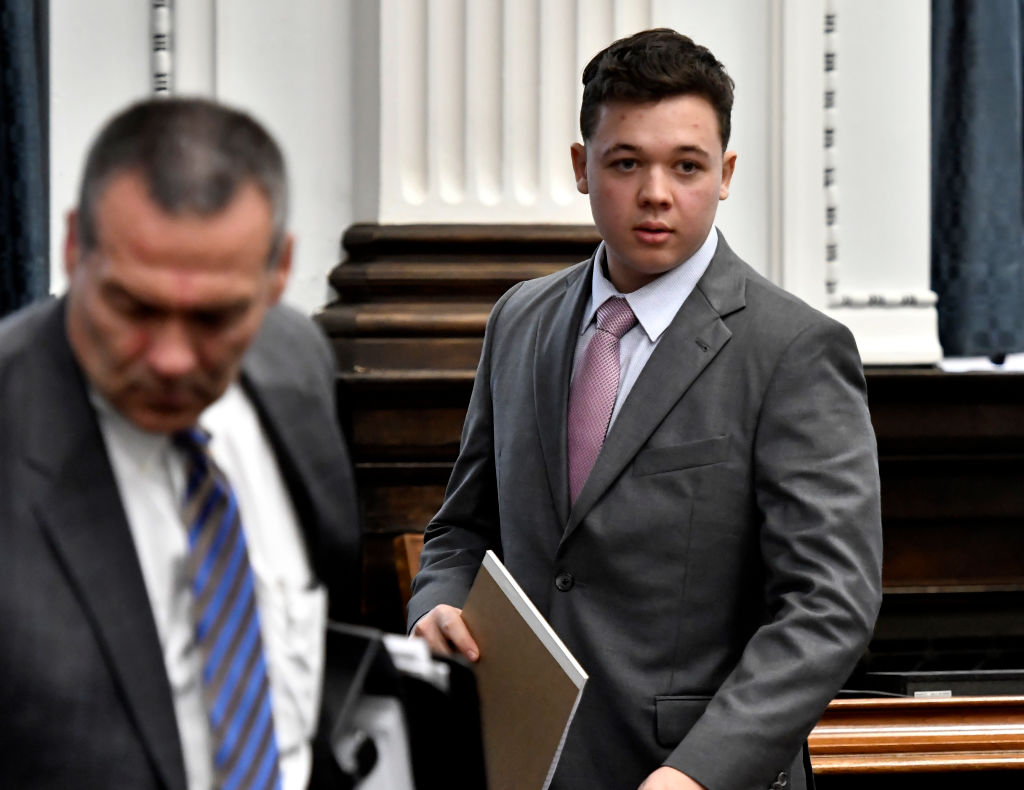After 18-year-old Kyle Rittenhouse was acquitted of all charges in the deaths of two men who attacked him in Kenosha, Wisconsin, last year, House Judiciary Committee Chairman Jerry Nadler immediately announced his request for action from the federal government.
Now, some legal experts say any prosecution by President Joe Biden’s Justice Department claiming Rittenhouse committed civil rights violations while defending himself would almost certainly fail.
And the chances of a successful civil lawsuit would likely be just as poor.
“This heartbreaking verdict is a miscarriage of justice and sets a dangerous precedent which justifies federal review by DOJ,” Nadler tweeted on Nov. 19.
This heartbreaking verdict is a miscarriage of justice and sets a dangerous precedent which justifies federal review by DOJ. Justice cannot tolerate armed persons crossing state lines looking for trouble while people engage in First Amendment-protected protest. https://t.co/Uh95Uc1Ddo
— Rep. Nadler (@RepJerryNadler) November 19, 2021
On its very surface, this suggestion is detestable. The idea that the jury failed to carry out justice simply because a powerful Democratic member of Congress personally disagreed with the verdict is ridiculous.
Rittenhouse was acquitted Nov. 19 of all counts related to the Aug. 25, 2020, shootings that killed Joseph Rosenbaum, 36, and Anthony Huber, 26 — two men who pursued and attacked him during the riots that followed a police shooting. Rittenhouse wounded a third man, Gaige Grosskreutz, now 27, who admitted in court that he’d pointed a handgun at Rittenhouse’s head before Rittenhouse shot him.
By all evidence, the jury in Kenosha correctly followed the law in Wisconsin. Constitutional law professor Jonathan Turley wrote in a Fox News opinion article that Nadler’s personal distaste for self-defense does not change the laws as they are written.
“Rittenhouse was acquitted on state charges by a state jury,” the George Washington University professor wrote. “Moreover, while some have called for reducing self-defense protections, the jury applied the law as it currently appears on the books. It is not allowed to simply ignore the law to seek our own criminal justice rules.”
In addition, Turley suggested that the federal government would be threatening the justice system if it investigated jury decisions with no evidence of malpractice.
“The Rittenhouse jury faithfully applied the Wisconsin law and came to a well-founded verdict of acquittal,” he wrote. “It is a dangerous precedent to investigate jury decisions simply because you disagree with their decisions.”
The Justice Department could theoretically bring criminal charges against Rittenhouse for allegedly violating the civil rights of Rosenbaum, Huber and Grosskreutz, but there is no reason to think it would be successful, according to both Turley and Cornell Law School Professor William Jacobson.
“There is no obvious basis for a civil rights prosecution against Rittenhouse,” Jacobson told the Washington Examiner. “The videos are the videos, and the testimony already is under oath from witnesses and alleged victim Gaige Grosskreutz.”
Turley wrote that the evidence for a civil rights prosecution is essentially non-existent.
“Rittenhouse is White and shot three White men,” he wrote. “He was not accused of a hate crime. Moreover, he is not a member of law enforcement or government agency, so he did not deprive anyone of their civil rights under federal law.”
The families of Rosenbaum and Huber could also theoretically sue Rittenhouse in civil court alleging wrongful death, the Examiner reported.
(Former NFL star and actor O.J. Simpson was sued on such grounds by the families of his ex-wife Nicole Brown Simpson and her friend, Ron Goldman, after Simpson was acquitted of their murders in 1996, the Examiner noted. O.J. Simpson was found liable for their deaths and ordered to pay a judgment of $33.5 million.)
According to NBC News, some legal analysts said the lower standard could make a civil suit against Rittenhouse more likely to succeed.
“In a civil case you just have to prove negligence,” said University of California Hastings College of Law professor Rory Little. “Did his conduct fall below the standard of care that the average person would have?”
He told NBC that Rittenhouse “could say, ‘I didn’t have the intent to kill anyone — I just panicked. The jury could still say, ‘We didn’t think the average person would do what you did.’ If your conduct is judged to be less than that, you lose.”
Turley’s piece on Fox News, however, didn’t give the wrongful death argument much of a chance.
“All three men attacked or threatened Rittenhouse before he used his weapon,” he wrote. “The common law protects not just self-defense but mistaken self-defense where a person may have erroneously (but reasonably) thought that he was under attack.”
Jacobson told the Examiner that any civil case would face the same problem criminal prosecutors faced in Kenosha. The evidence is on the side of Rittenhouse, and the case for self-defense.
“A civil case will fail even by a preponderance of the evidence,” he said, noting that the evidence in favor of Rittenhouse “will be just as overwhelming in a civil case” as it was in criminal court.
While subsequent suits against Rittenhouse are still possible, legal experts seem to have doubts about the possibility they would succeed.
Nadler and the left may not like the verdict, but they cannot change the evidence.
This article appeared originally on The Western Journal.

























 Continue with Google
Continue with Google